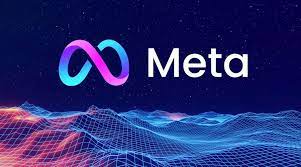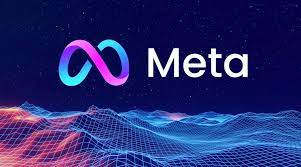
The open-source artificial intelligence model Llama from Meta will soon be available in a commercial version, the firm announced on Tuesday. This will provide start-ups and other companies with a strong free alternative to the pricy proprietary models offered by OpenAI and Google.
In a blog post, Meta referred to Microsoft as "our preferred partner" for the launching of the new model, dubbed Llama 2. Llama 2 will be supplied by Microsoft (MSFT.O) through its Azure cloud service and will operate on the Windows operating system.
According to the blog post and a different Facebook post by Meta CEO Mark, the model, which Meta previously only supplied to selected academics for research purposes, will also be made available via direct download and through companies like Amazon Web Services, Hugging Face, and others.
"Open source drives innovation because it enables many more developers to build with new technology," Zuckerberg wrote. "I believe it would unlock more progress if the ecosystem were more open."
Making a model as complex as Llama widely accessible and free for companies to build on poses a threat to the early market dominance achieved by players like OpenAI, whose models Microsoft supports and which it already makes available to business customers via Azure.
While the new Llama has been trained on 40% more data than its predecessor and has received more than 1 million human annotations to improve the quality of its outputs, Zuckerberg said that the previous Llama was already competitive with models that power OpenAI's ChatGPT and Google's Bard chatbot.
"Commercial Llama could change the picture," said Amjad Masad, chief executive at software developer platform Replit, who said more than 80% of projects there use OpenAI's models.
"Any incremental improvement in open-source models is eating into the market share of closed-source models because you can run them cheaply and have less dependency," said Masad.
The news comes after Alphabet's Google and Amazon announced plans to offer business clients a variety of AI models to pick from. These companies are Microsoft's biggest cloud rivals.
For instance, in addition to its own family of Titan models, Amazon is promoting access to Claude, an AI developed by the well-known startup Anthropic. The same goes for Google, which has stated that it intends to make Claude and other models available to its cloud users.
Microsoft has been concentrating on making technologies from OpenAI accessible on Azure up to this point.
When asked why Microsoft would support a product that would reduce OpenAI's value, a Microsoft representative responded that allowing developers to select the models they want to employ will help the company maintain its position as the leading cloud platform for AI projects.
For Meta, a thriving open-source ecosystem of artificial intelligence technology built using its models might thwart rivals' ambitions to monetize their proprietary technology, the value of which would vanish if developers could utilise equally potent open-source systems for nothing.
The tech industry was rocked in May when a leaked internal Google memo headlined "We have no moat, and neither does OpenAI" predicted precisely this kind of outcome.
As it has done over the past few years with its widely-used open source AI framework PyTorch, Meta is also banking that it will profit from any improvements, bug fixes, and products that result from its approach being the standard for AI innovation.
As a social media company, Meta has more to gain by effectively crowd-sourcing ways to reduce infrastructure costs and maximise creation of new consumer-facing tools that may draw people to its ad-supported services than it does by charging for access to its models, Zuckerberg told investors in April.
"Unlike some of the other companies in the space, we're not selling a cloud computing service where we try to keep the different software infrastructure that we're building proprietary," Zuckerberg said.
"For us, it's way better if the industry standardizes on the basic tools that we're using and therefore we can benefit from the improvements that others make."
However, releasing Llama into the wild carries concerns since it increases the ease with which unscrupulous actors might construct goods with no regard for safety safeguards.
Stanford researchers took down a chatbot they made for $600 using a variation of the initial Llama model in April when it spewed obscene text.
According to Meta executives, public releases of technology lower safety risks by leveraging the wisdom of the population to uncover flaws and incorporate resilience into the systems.
In addition, the business claims to have implemented a "acceptable use" policy for commercial Llama that restricts "certain use cases," including as violence, terrorism, child exploitation, and other illicit activity.
(Source:www.marketscreener.com)
In a blog post, Meta referred to Microsoft as "our preferred partner" for the launching of the new model, dubbed Llama 2. Llama 2 will be supplied by Microsoft (MSFT.O) through its Azure cloud service and will operate on the Windows operating system.
According to the blog post and a different Facebook post by Meta CEO Mark, the model, which Meta previously only supplied to selected academics for research purposes, will also be made available via direct download and through companies like Amazon Web Services, Hugging Face, and others.
"Open source drives innovation because it enables many more developers to build with new technology," Zuckerberg wrote. "I believe it would unlock more progress if the ecosystem were more open."
Making a model as complex as Llama widely accessible and free for companies to build on poses a threat to the early market dominance achieved by players like OpenAI, whose models Microsoft supports and which it already makes available to business customers via Azure.
While the new Llama has been trained on 40% more data than its predecessor and has received more than 1 million human annotations to improve the quality of its outputs, Zuckerberg said that the previous Llama was already competitive with models that power OpenAI's ChatGPT and Google's Bard chatbot.
"Commercial Llama could change the picture," said Amjad Masad, chief executive at software developer platform Replit, who said more than 80% of projects there use OpenAI's models.
"Any incremental improvement in open-source models is eating into the market share of closed-source models because you can run them cheaply and have less dependency," said Masad.
The news comes after Alphabet's Google and Amazon announced plans to offer business clients a variety of AI models to pick from. These companies are Microsoft's biggest cloud rivals.
For instance, in addition to its own family of Titan models, Amazon is promoting access to Claude, an AI developed by the well-known startup Anthropic. The same goes for Google, which has stated that it intends to make Claude and other models available to its cloud users.
Microsoft has been concentrating on making technologies from OpenAI accessible on Azure up to this point.
When asked why Microsoft would support a product that would reduce OpenAI's value, a Microsoft representative responded that allowing developers to select the models they want to employ will help the company maintain its position as the leading cloud platform for AI projects.
For Meta, a thriving open-source ecosystem of artificial intelligence technology built using its models might thwart rivals' ambitions to monetize their proprietary technology, the value of which would vanish if developers could utilise equally potent open-source systems for nothing.
The tech industry was rocked in May when a leaked internal Google memo headlined "We have no moat, and neither does OpenAI" predicted precisely this kind of outcome.
As it has done over the past few years with its widely-used open source AI framework PyTorch, Meta is also banking that it will profit from any improvements, bug fixes, and products that result from its approach being the standard for AI innovation.
As a social media company, Meta has more to gain by effectively crowd-sourcing ways to reduce infrastructure costs and maximise creation of new consumer-facing tools that may draw people to its ad-supported services than it does by charging for access to its models, Zuckerberg told investors in April.
"Unlike some of the other companies in the space, we're not selling a cloud computing service where we try to keep the different software infrastructure that we're building proprietary," Zuckerberg said.
"For us, it's way better if the industry standardizes on the basic tools that we're using and therefore we can benefit from the improvements that others make."
However, releasing Llama into the wild carries concerns since it increases the ease with which unscrupulous actors might construct goods with no regard for safety safeguards.
Stanford researchers took down a chatbot they made for $600 using a variation of the initial Llama model in April when it spewed obscene text.
According to Meta executives, public releases of technology lower safety risks by leveraging the wisdom of the population to uncover flaws and incorporate resilience into the systems.
In addition, the business claims to have implemented a "acceptable use" policy for commercial Llama that restricts "certain use cases," including as violence, terrorism, child exploitation, and other illicit activity.
(Source:www.marketscreener.com)














